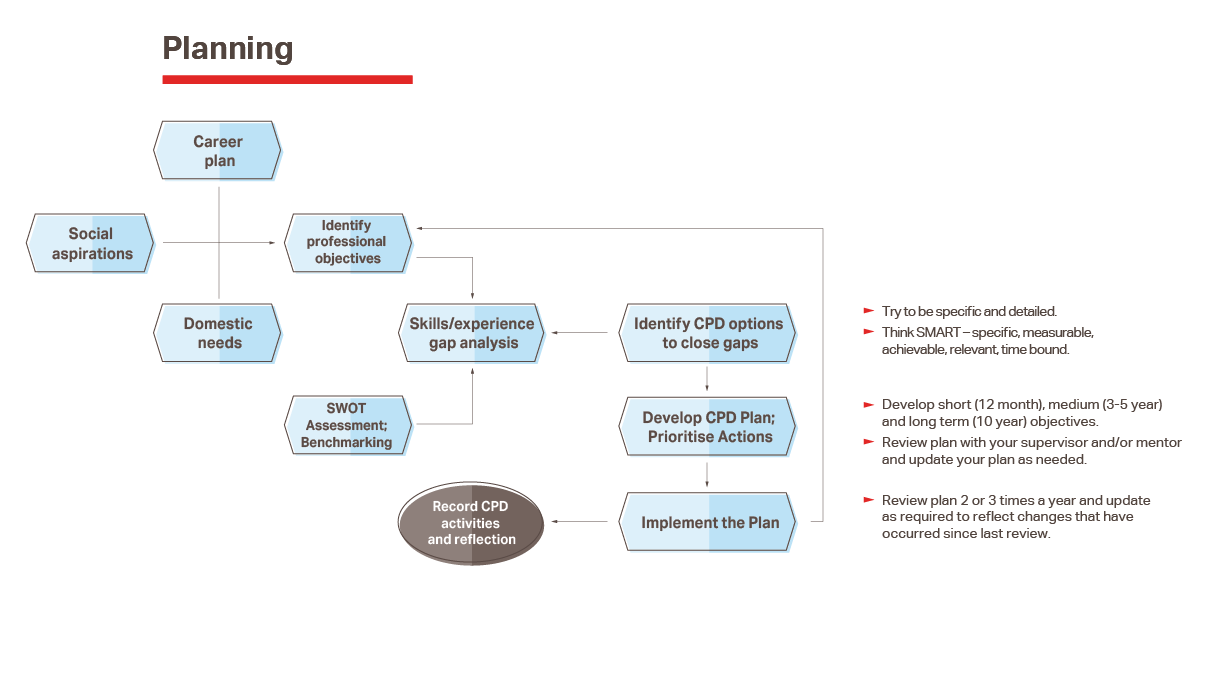
CPD Tools
Part of the Career Developer suite, this is a tool for professionally registered members (EngTech, IEng or CEng) to record their experience and professional activity, providing a strong framework for career progression and professional development.
Log in to CPD tools
For those that prefer to use a spreadsheet to record their CPD an example spreadsheet template can be downloaded using the following link.
Download template
Need some help?
If you have a question about Continuing Professional Development, please contact us.